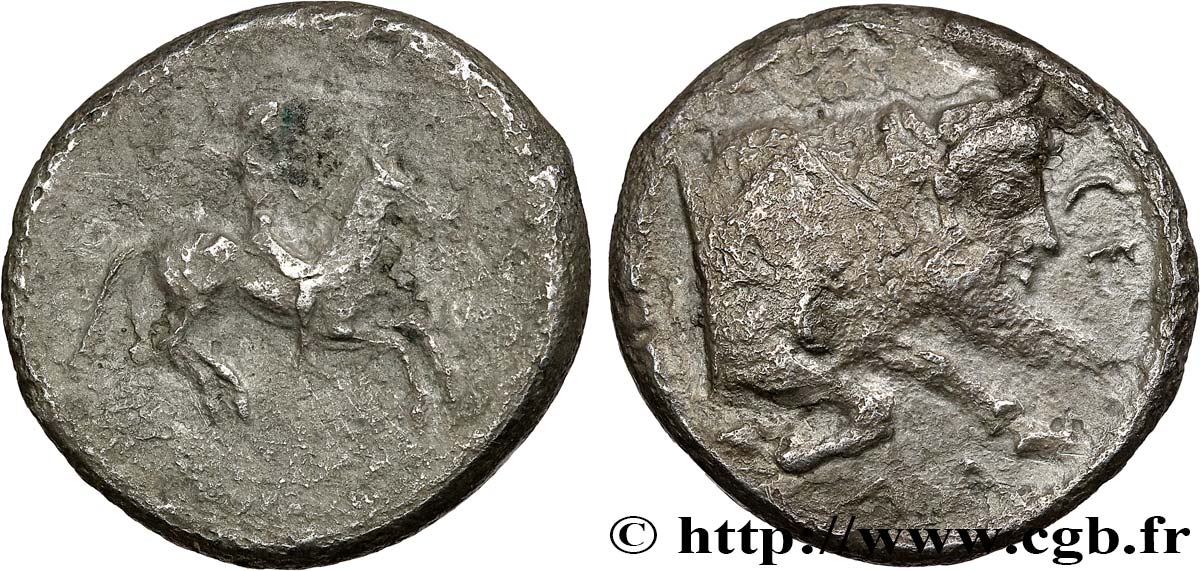Obverse
Obverse legend : ANÉPIGRAPHE.
Obverse description : Cavalier barbu, nu et casqué, galopant à droite, brandissant une javeline transversale.
Reverse
Reverse description : Protomé de taureau androcéphale du dieu fleuve Gélas à droite avec la barbe longue et pointue ; le tout dans les restes d’une dépression creuse.
Reverse legend : GE-L-A
Reverse translation : (Géla).
Historical background
SICILY - GELA
(5th century BC)
Gela was founded in 688 BC.. -VS. by Rhodian and Cretan settlers. Coinage began around 498 BC.. -VS. under the tyranny of Kleandros (505-498 AC. ) or Hippokrates (498-491 AC. ), Gelon (491/490-486/485 AC. ), then Hieron (486/485-478/477 AC. ) were successively tyrants of Gela before imposing themselves on Syracuse. The last tyrant was Polyzalos (478/477-466 AC. ) before the restoration of Democracy in 466 BC. -VS. like in Syracuse. The city experienced extraordinary economic and artistic development between 450 and 413 BC.. -VS. The Athenian expedition, the reaction of Syracuse modified this situation. Gela finally fell to the Carthaginians during the invasion of 405 BC.. -VS. The city, destroyed, was never to recover. Nevertheless, the city remained under Carthaginian influence before passing under the domination of Syracuse and Dionysius the Elder.. After the death of Dionysius, she rallied Dion against Dionysius the Younger, then Timoleon restored the city with Ionian settlers from the island of Keos. Opposed to Agathokles, Gela was harshly submitted before joining the opposition with Agrigento before being defeated and falling back under the control of the Syracusan monarch. In 282, Gela was again destroyed by Phintias and devastated by Mamertine mercenaries around 264 BC.. -VS. The city became a tributary of Rome during the Punic Wars.










 Report a mistake
Report a mistake Print the page
Print the page Share my selection
Share my selection Ask a question
Ask a question Consign / sell
Consign / sell
 Full data
Full data









